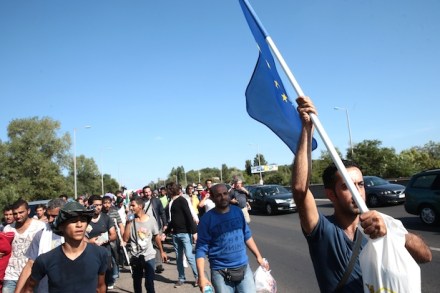Spectator most-read: Trump’s defeat, life in the Royal Navy and ‘racist’ Oxford
The Spectator’s fifth most-read article of the week was Nigel Farndale on what life was like on board a warship in our ‘much reduced’ Royal Navy. Nigel joined the crew of HMS Bulwark in the Mediterranean where he found a Royal Navy undergoing an identity crisis amidst swingeing cuts. Our fourth most-read piece was Damian Thompson on the furore surrounding the last-minute decision to pull an incendiary book about the Church of England. Publisher Bloomsbury sent a panicky message to reviewers asking them to return their copies of ‘That Was The Church That Was: How the Church of England Lost the English People’. You can read Damian’s article about why




















